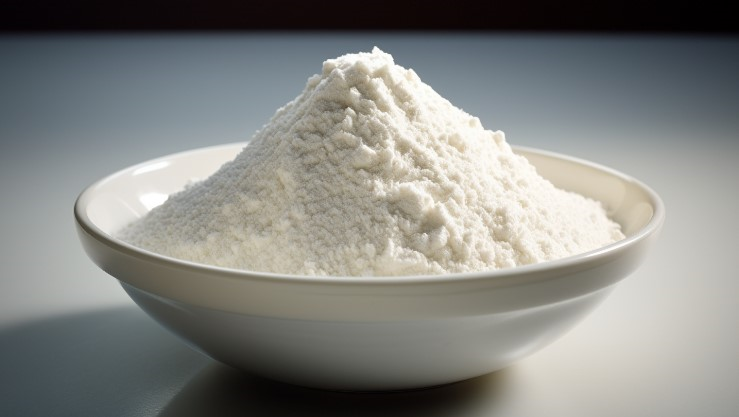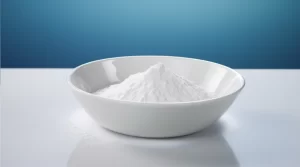ヒュペルジンの有効性

Huperzine A when what
Huperzine A, a natural alkaloid isolated from the huperzine family of huperzine, is a potent, highly specific, reversible acetylcholinesterase inhibitor.
Compared with other acetylcholinesterase inhibitors, such as tacrine, physostigmine, donepezil, rivastigmine, huperzine A is more effective in raising corticoacetylcholine levels, acts for a longer period of time, penetrates the blood-brain barrier more easily, and has a variety of pharmacological functions
Other potential pharmacological functions include attenuating beta-amyloid toxicity, preventing glutamate-induced neurotoxicity, and anti-free radicals.
Huperzine A is an alkaloid derived from the Chinese herbal plant Huperzine ophiosus, which is an approved ingredient in anti-Alzheimer’s drugs in some regions. There is a long history of the use of serpentine huperia as medicine in traditional medicine to treat diseases including pain relief, detoxification, swelling, bruising, tension, swelling, rheumatism, schizophrenia, myasthenia gravis and fever.
What are the empirical effects of huperzine A
1. Huperzine A is beneficial for mild cognitive impairment
Mild cognitive impairment is a clinical stage in a continuum of cognitive decline between “normal aging” and dementia.
The key criteria to distinguish mild cognitive impairment from dementia are to maintain independence of functional abilities, with no impairment in cognitive areas, including memory, executive function, attention, language, or visuospatial skills, and a lack of significant impairment in social or occupational functioning.
Studies have shown that patients with mild cognitive impairment develop Alzheimer’s disease at a rate of 10 to 15 percent per year, with 80 percent of patients transitive to Alzheimer’s disease after about six years of follow-up.
A systematic review and Meta-analysis of nine randomized controlled trials related to mild cognitive impairment showed that huperzine A improved memory quotient (MQ) and Simple Mental State Test (MMSE) scores compared with placebo.
2. Huperzine A is beneficial for depression
Depression is a universal, chronic, disabling and multi-dimensional mental disorder. Cognitive dysfunction is one of the core diagnostic and symptom criteria of depression.
Cognitive dysfunction refers to deficits in attention, verbal and non-verbal learning, short-term and working memory, visual and auditory processing, problem solving, processing speed, and motor function.
A systematic review of three randomized controlled trials involving 238 patients with depression found that the combination of huperzine A and antidepressants did not lead to a greater improvement in depressive symptoms than did the use of antidepressants alone.
The huperzine A group did, however, show greater improvements in cognitive function (as measured by the Wisconsin Card Classification Test and the Wechsler Memory Scale) and quality of life than the antidepressant group alone.
3. Huperzine A is beneficial for Alzheimer’s disease
Alzheimer’s disease is a degenerative disease of the central nervous system that occurs in early old age.
Clinical manifestations include memory disorders, aphasia, apraxia, agnosia, visuospatial disorders, deficits in abstract thinking, computational abilities, and personality and behavioral disorders. These symptoms can get progressively worse, eventually leading to a complete loss of motor function.
While there is no specific treatment to reverse or prevent Alzheimer’s disease, treatment strategies that provide early support and symptom relief can mitigate the rapid decline in patients’ quality of daily life
A systematic review and meta-analysis of 20 randomized controlled trials involving 1823 patients with Alzheimer’s disease showed that huperzine A improved cognitive function, activities of daily living, and global clinical assessments compared with placebo.
4. Huperzine A is a neuroleptic disorder
Schizoaffective disorder, also known as schizophrenia, is a complex, chronic mental health disorder characterized by a range of symptoms, including delusions, hallucinations, speech or behavior disturbances, and impaired cognitive abilities.
Impaired cognitive function is a central feature of dyslexia and includes moderate to severe deficits in working memory, attention, processing speed, vision, language learning, reasoning, planning, abstract thinking, and problem solving.
A literature review and meta-analysis (12 randomized controlled trials involving 1117 patients with schizophrenia spectrum disorder) indicated that antipsychotics were more effective than antipsychotics alone. Combined use of huperzine A further improved memory quotient, verbal IQ, operational IQ, total IQ, response management errors, non-persistent errors, and total psychopathological symptom score.
5. Huperzine A for the treatment of cocaine abuse
Cocaine, also known as cocaine, is considered one of the most dangerous drugs available today, creating a strong physical addiction that can have serious negative effects on the user’s health, social relationships, and economy.
Chronic cocaine use causes persistent changes in the vascular system, increasing the likelihood of myocardial infarction, high blood pressure, atherosclerosis and stroke.
A randomized, double-blind, placebo-controlled study (10 days of 47 subjects receiving intravenous cocaine) showed that huperzine use significantly reduced any increase in cocain-induced drug effects, euphoria, arousal, willingness to pay, and adverse effects compared to placebo.
参照
1. [Efficacy and safety of huperzine A in treating patients with mild cognitive impairment: a systematic review and Meta-analysis]
2. Huperzine A for treatment of cognitive impairment in major depressive disorder: a systematic review of randomized controlled trials
3. Huperzine A for Alzheimer’s Disease: A Systematic Review and Meta-Analysis of Randomized Clinical Trials
4. Adjunctive huperzine A for cognitive deficits in schizophrenia: a systematic review and meta-analysis
huperzine manufacturer:
電話番号+86 (029) 8187 2325
Eメール:[email protected]


